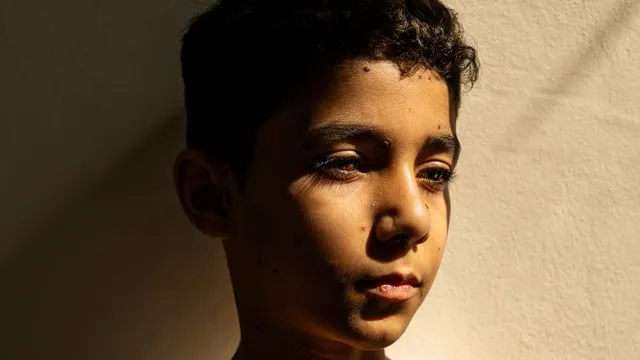
CII chairman condemns Israeli aggression in Gaza amid humanitarian crisis
2025-04-18 00:00- The ongoing military actions in Gaza have resulted in catastrophic humanitarian consequences, claiming the lives of around 51,000 Palestinians.
- Calls from international leaders, including France’s President Emmanuel Macron, demand an immediate cessation of hostilities to relieve suffering.
- The worsening situation in Gaza highlights the urgent need for a united international response and the resolution of the conflict.
Express your sentiment!
Insights
In recent months, the Council of Islamic Ideology (CII) Chairman Dr Raghib Hussain Naeemi has issued a strong condemnation of Israeli military actions in Gaza. This military engagement has led to a significant humanitarian crisis, as reported by various news outlets. Over 18 months, the violence has claimed thousands of lives, with significant casualties among women and children. Health agencies in Gaza report that at least 51,000 Palestinians have died due to ongoing Israeli attacks since the beginning of the conflict. The conditions in Gaza have faced unprecedented deterioration, with essential supplies and medical aid being critically low. Amid this escalating violence, France’s President Emmanuel Macron urged for an end to the suffering of Gazan civilians, emphasizing that a ceasefire is necessary for the safe release of Israeli hostages. Reports indicate that the Israeli military claimed responsibility for specific airstrikes aimed at identified Hamas commanders. The international community, including the United Nations, has raised alarms regarding the humanitarian situation, urging both sides to cease hostilities and engage in constructive dialogue. In light of this crisis, more Israelis, particularly those serving in the military, have voiced dissent against the ongoing offensive in Gaza. Moreover, human rights organizations have accused Israeli forces of targeting healthcare facilities in Gaza, stating such actions undermine essential services required amidst the unfolding humanitarian crisis. As negotiations for a possible ceasefire stall, Hamas has received proposals from mediators that include controversial conditions such as disarmament, which have faced immediate rejection by the Palestinian group. The war, sparked by a Hamas attack on October 7, has had devastating consequences, leading to widespread displacement and destruction of infrastructure in Gaza. The UN describes the situation as potentially the worst humanitarian crisis witnessed in the region's recent history, with urgent calls for international intervention to address both immediate and long-term repercussions of the conflict. As various groups try to mediate a ceasefire, the cycle of violence continues to escalate, leaving many civilians in peril and calling for a united international response to end hostilities and ease the suffering of those caught in the crossfire.
Contexts
The impact of war on civilians in Gaza has been profound and multifaceted, often resulting in devastating consequences for the population. Over the years, the region has witnessed repeated conflicts, which have caused significant loss of life, destruction of infrastructure, and severe humanitarian crises. Civilians, including women and children, have borne the brunt of these hostilities, leading to widespread trauma and displacement. Reports indicate that the casualty figures often illustrate a stark asymmetry, with civilian casualties numbering in the thousands in each conflict, highlighting the dire situation faced by those living in affected areas. Health systems have been overwhelmed, lacking supplies and personnel, exacerbating the suffering caused by both the violence and the resultant health crises that emerge in the aftermath. Access to essential services such as clean water, healthcare, and education has been dramatically reduced due to ongoing military actions and the destruction of infrastructure. For many families, securing basic necessities has become a daily struggle, with reports of acute shortages of food and medical supplies. The psychological toll on civilians is immeasurable, with many experiencing depression, anxiety, and post-traumatic stress disorder as a result of the constant threat of violence and loss of loved ones. The displacement of populations within Gaza has further complicated these issues, as many individuals find themselves living in overcrowded conditions, often with limited access to support systems. In addition to physical devastation and humanitarian challenges, the war's impact also extends to social and economic structures within Gaza. Prolonged conflict has led to high unemployment rates, particularly among youth, further perpetuating cycles of poverty and frustration. With limited opportunities for economic development, particularly due to blockades and restrictions, many families struggle to provide for their basic needs, leading to a deterioration of social cohesion. Such instability has created fertile ground for extremist ideologies to take root, complicating efforts for peace and recovery in the region. The international response to the humanitarian crisis in Gaza has often included calls for ceasefires, increased aid, and long-term solutions. However, the complexity of the political landscape and varying interests of external actors have made substantial progress difficult to achieve. Humanitarian organizations continue to work on the ground, providing critical assistance and advocating for the rights and dignity of civilians. Nevertheless, until a sustainable resolution to the conflict is reached, the cycle of violence and its impacts on civilians in Gaza are likely to persist, necessitating ongoing attention and action from the global community.